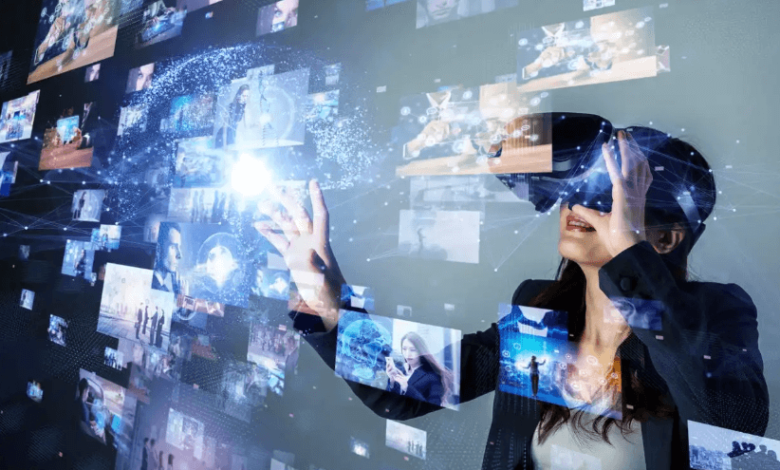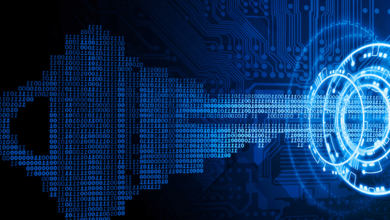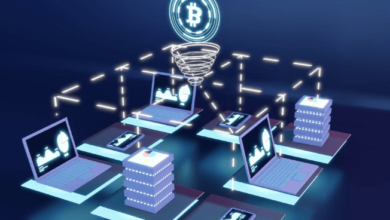Technology in 2025: Transforming the Digital World

Technology is advancing at an unprecedented pace, reshaping the way we live, work, and communicate. From artificial intelligence (AI) to cloud computing, 5G networks, Internet of Things (IoT), and blockchain, modern innovations are transforming businesses, industries, and everyday life. Staying up to date with technology trends in 2025 is essential for individuals and organizations looking to remain competitive and leverage the latest tools effectively.
This article explores the most significant technology trends of 2025, their benefits, and their impact on society.
Artificial Intelligence: Driving Smarter Solutions
Artificial Intelligence has become a cornerstone of modern innovation. AI systems can analyze large datasets, recognize patterns, and make decisions faster than humans.
- Healthcare: AI supports early diagnosis, robotic surgeries, and personalized treatment plans.
- Business: Companies use AI-powered analytics, chatbots, and automation to improve efficiency and customer service.
- Education: Adaptive learning platforms personalize lessons for each student, enhancing learning outcomes.
Experts predict that AI could contribute over $15 trillion to the global economy by 2030, highlighting its transformative power across industries.
Cloud Computing: Enabling Flexibility and Growth
Cloud computing allows organizations to store, manage, and process data remotely, offering scalability, collaboration, and cost efficiency.
- Scalability: Easily expand or reduce computing resources based on demand.
- Collaboration: Teams can work seamlessly from anywhere using cloud-based tools.
- Cost Efficiency: Reduces IT infrastructure and maintenance costs.
Leading providers such as AWS, Microsoft Azure, and Google Cloud are helping businesses modernize operations and accelerate innovation.
5G Networks: Redefining Connectivity
The rollout of 5G technology is transforming connectivity, providing faster speeds, lower latency, and improved reliability.
- Entertainment: Smooth streaming, online gaming, and immersive virtual reality experiences.
- Healthcare: Enables telemedicine, remote surgeries, and real-time patient monitoring.
- Smart Cities: IoT-enabled infrastructure enhances traffic management, energy efficiency, and public safety.
By 2030, billions of devices are expected to rely on 5G networks, driving growth across multiple sectors.
See also: Technology in 2025: Driving Innovation and Transformation
Internet of Things (IoT): Creating Smart Ecosystems
The Internet of Things connects devices to the internet, creating intelligent homes, workplaces, and cities.
- Smart Homes: Control lighting, appliances, and security systems remotely.
- Healthcare: Wearables track vital signs, sleep patterns, and physical activity.
- Smart Cities: IoT sensors optimize energy use, traffic flow, and waste management.
Analysts estimate over 30 billion IoT devices will be connected globally by 2030, making IoT a foundational technology of modern life.
Cybersecurity: Protecting Digital Assets
As technology grows, cyber threats are becoming more sophisticated. Cybersecurity ensures that sensitive data is protected and trust is maintained.
- AI-Enhanced Security: Detects and prevents cyberattacks in real-time.
- Encryption: Safeguards communications and financial transactions.
- User Education: Reduces risks from phishing, malware, and identity theft.
With cybercrime projected to cost trillions annually, robust cybersecurity measures are essential for businesses and individuals alike.
Blockchain: Beyond Cryptocurrency
Blockchain technology provides secure and transparent solutions that extend beyond digital currency.
- Finance: Facilitates fast, secure, and transparent transactions.
- Supply Chain: Tracks products from production to delivery, increasing accountability.
- Healthcare: Protects sensitive medical records and ensures data integrity.
The rise of Web3 and decentralized applications (dApps) demonstrates blockchain’s growing role in digital ecosystems.
Green Technology: Innovation with Sustainability
Green technology merges innovation with environmental responsibility.
- Renewable Energy: Solar, wind, and hydro reduce reliance on fossil fuels.
- Electric Vehicles (EVs): Promote cleaner and sustainable transportation alternatives.
- Smart Energy Grids: AI-driven systems optimize energy usage and minimize waste.
Green technology shows that progress and sustainability can coexist, benefiting both businesses and the environment.
Emerging Technologies to Watch
Several emerging technologies are poised to reshape industries and lifestyles:
- Quantum Computing: Offers unparalleled computational power for complex problem-solving.
- Metaverse: Provides immersive digital environments for work, education, and entertainment.
- Biotechnology: Advances in genetics improve healthcare, agriculture, and food security.
- Artificial General Intelligence (AGI): Machines capable of human-like reasoning and decision-making.
These technologies have the potential to transform industries, economies, and daily life in the next decade.
Conclusion
Technology in 2025 is more than just convenience—it is the foundation of progress. AI, cloud computing, 5G, IoT, blockchain, and green technology are reshaping businesses, industries, and personal lives. Cybersecurity ensures safety and trust, while emerging innovations like quantum computing, biotechnology, and the metaverse promise even greater advancements.
For businesses, adopting these technologies is crucial for competitiveness and growth. For individuals, staying informed and embracing new technology leads to smarter living, better opportunities, and increased efficiency. Ultimately, technology is not just shaping the future—it is defining it.





